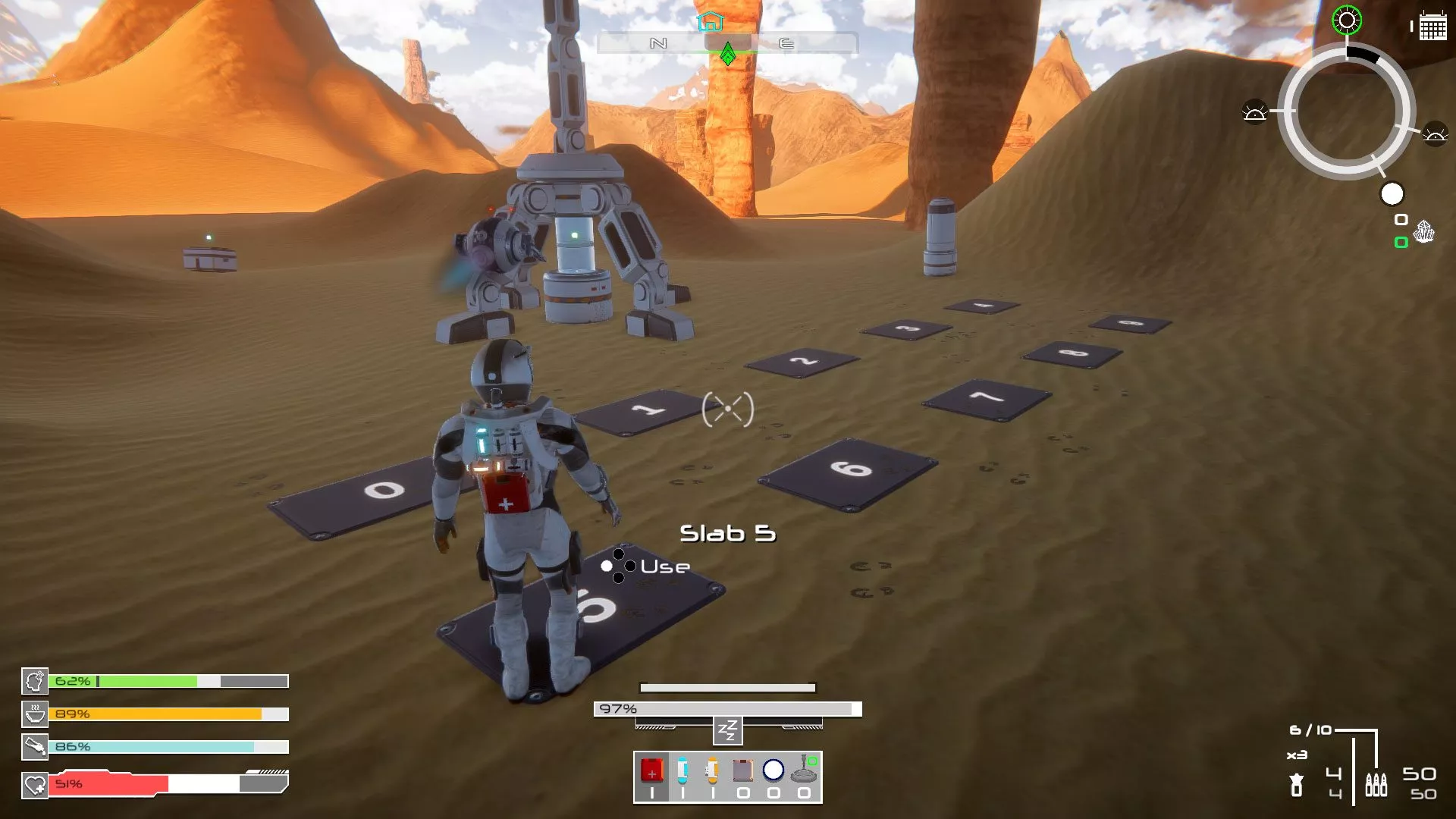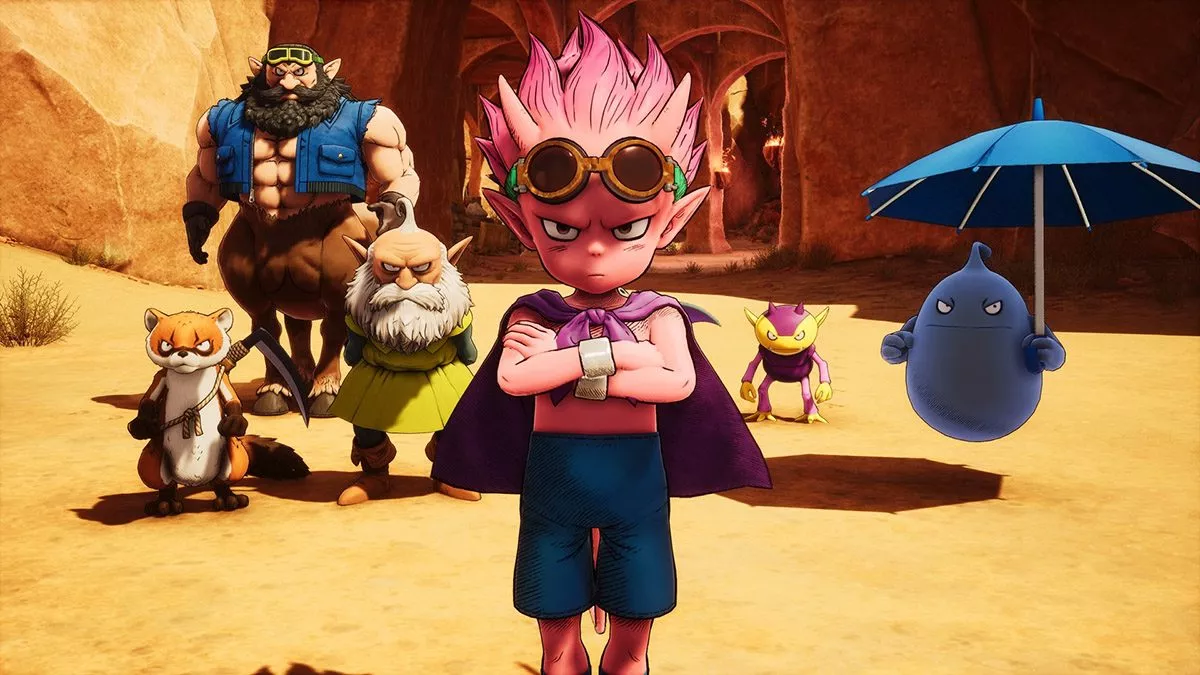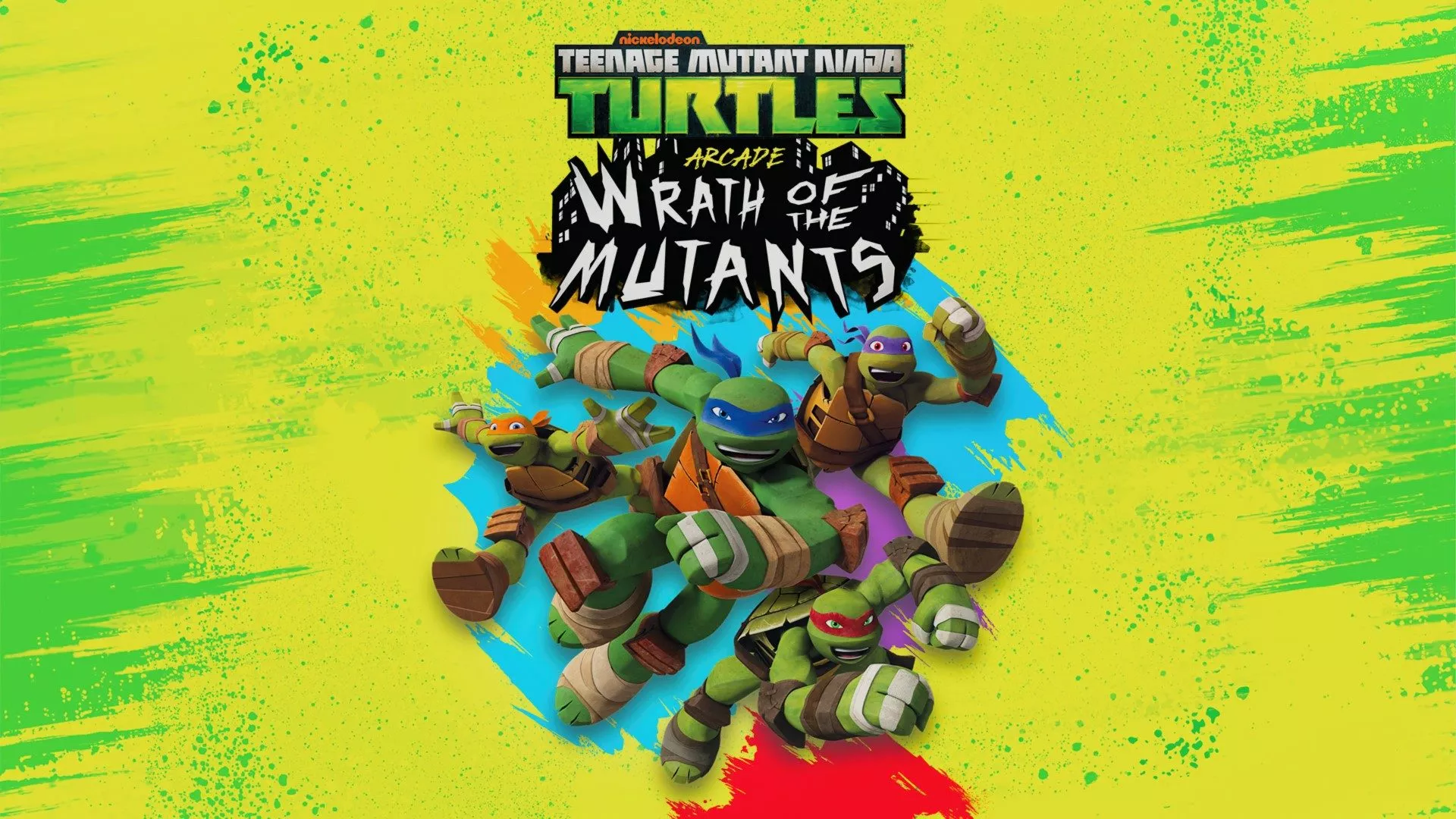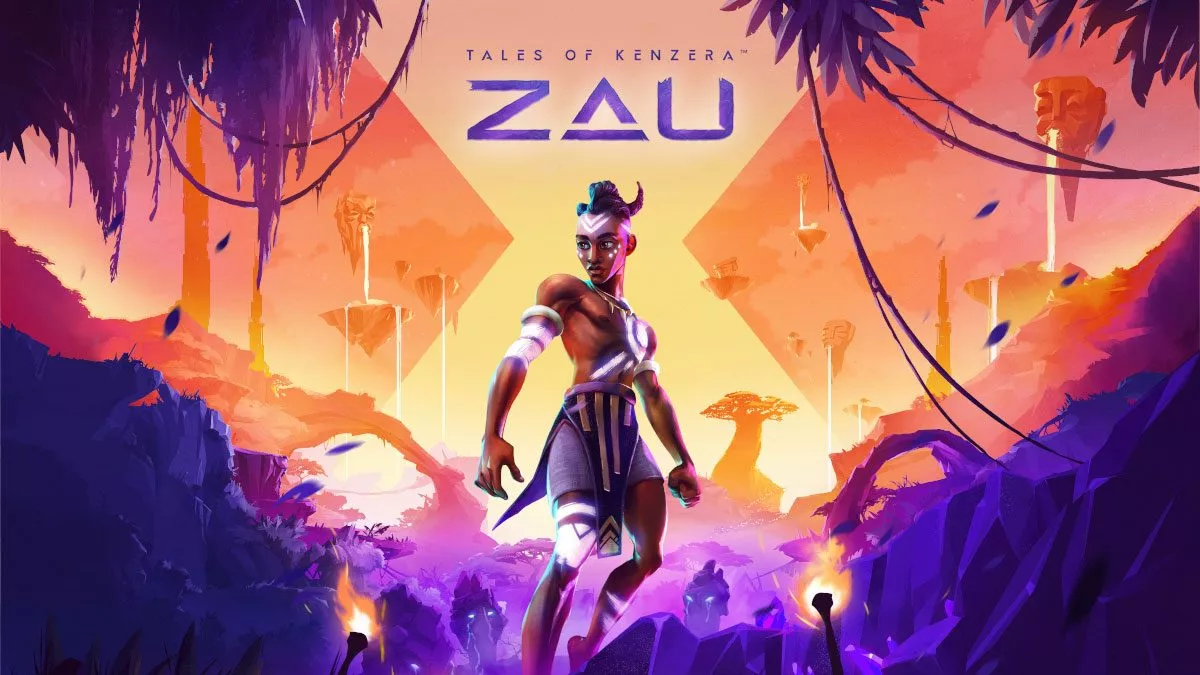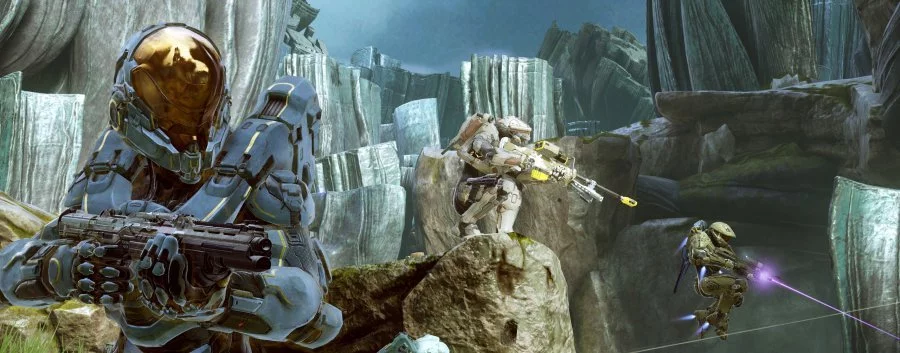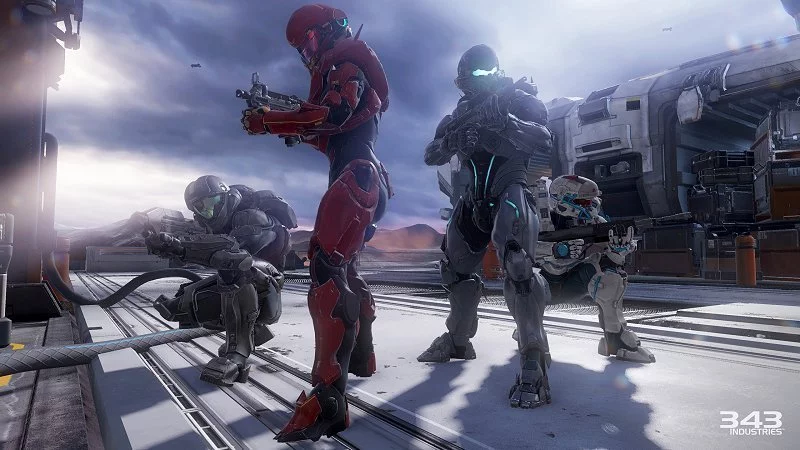Ahead of Halo 5: Guardians’ release tomorrow, we sat down with Campaign and Sandbox Design Director, Brad Walsh, to discuss the finer points of the game’s AI companions and difficulty levels.
One massive change to Halo in this iteration is persistent four-player co-op. If you don’t have real-world friends to fill up a fireteam, AI will always be at hand to assist.
Welch told us that the AI was designed in a very specific way.
“[Early on,] we wanted to do the AI replacement of players – we call them musketeers internally,” Welch began. “We thought that was really important; it was also one of the most challenging additions too.”
In playing Guardians’ campaign for review – and, its first three missions specifically ahead of the game’s review embargo at 6.00pm AEDT tonight – we found the AI isn’t about to carry you through a level.
“With the musketeers, they definitely become less effective as you move up difficulty levels, and that was intentional,” Welch confirmed. “[That being said,] we don’t want scenarios where they’re out and out dumb.
“The bleed out times speed up on Legendary and [the AI has] less time to get to you. They might be taken out themselves while trying to get to you. That’s to encourage more usage of orders and more careful play in higher difficulty levels. If you charge in or order the AI to do so, you’re not going to survive. There was some intentional design there to keep Legendary as challenging as possible.”
In-game, you can order your AI teammates to move up, attack specific targets, revive Spartans, pick up weaponry and more. When playing with a combination of AI players and real-life friends, only fireteam leaders Spartan Locke and Master Chief are able to order around any AI Spartans.
“We had a build where everyone could give orders, and it was just kind of a mess,” Welch confessed. “What would happen a lot was that everyone would give different orders and the AI would get into a confused state. People would then start yelling at each other and it wasn’t a fun thing. Hence, the fireteam leader being the only one to give orders.”
Another change to Halo is that Spartans can now downed in combat; if they’re not tended to while they’re bleeding out, they’ll eventually die. In our playthrough, we found that the AI could still be confused if multiple real-world players were all demanding a revive at once.
“There’s some ordering there,” Welch advised. “The first person closest to the musketeer should request a revive first and then work from there.
“Once you give the order to come and revive, the AI can be pretty single-minded about it,” he added. “That was deliberate as well; we tried different versions of the AI where it was smarter and would stop and fight and do things like that. You would actually get a lot of scenarios where they’d commit to stopping and fighting or worrying about defending you, but wouldn’t revive. The easiest and most understandable solution there was — you as a player have the intention of giving the revive order, and you can choose when to give it, and at that point the AI should come and do their best to revive.”
We think AI usefulness will be a point of contention at Guardians’ launch, but Welsh said 343 will listen and do their best to respond to feedback on AI-controlled Spartans.
“It depends on what the feedback [on the AI] is,” he said. “We definitely want to hear it – but then it gets down to whether or not it’s something we can fix, post-launch. We’re just very careful after launch of tweaking that – there’s an adage in game development that for every bug fix, there’s new bugs that could crop up. We get really careful in the last couple months, fixing stuff, because inevitably you break other stuff.
“Campaign changes after launch — totally open to it, and we’ll see what feedback is,” he summarised. “We’ll do our best to roll tweaks in post-launch as well.”
Welch also shed some light on Guardians’ difficulty levels.
“We scaled difficulty with the number of players,” he said. “Traditionally, playing Legendary in co-op was kind of the cheat mode if you wanted to get through it. We wanted to have the difficulty be the difficulty and have the scaling ramp it up with more real players. We actually scaled the difficulty quite a bit, compared to past games, so there was a lot of difficulty involved. That was a change we made for more longevity for players.”
According to Welch, Legendary is set to provide gameplay experiences of epic proportions.
“We kind of know the numbers of how many people play Legendary – people choose that level,” he said. “It’s not half the player base or anything like that. It was a real decision to ramp up the difficulty.”
Halo 5: Guardians is out tomorrow on Xbox One. Our review of the game goes live at 6.00pm AEDT today.
This article may contain affiliate links, meaning we could earn a small commission if you click-through and make a purchase. Stevivor is an independent outlet and our journalism is in no way influenced by any advertiser or commercial initiative.





